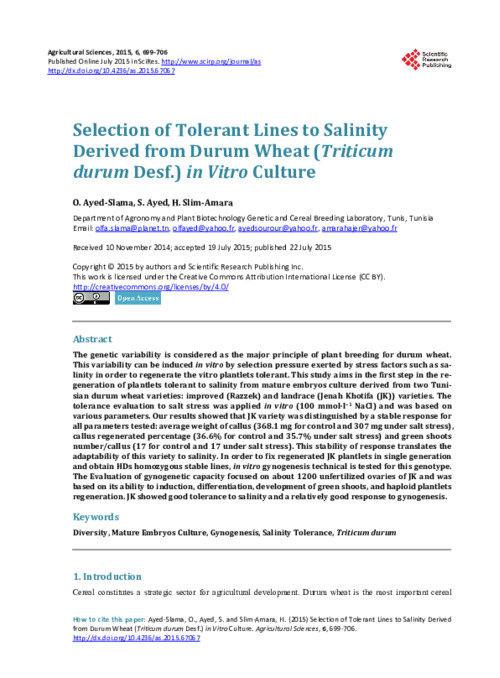Selection of Tolerant Lines to Salinity Derived from Durum Wheat (Triticum durum Desf.) in Vitro Culture
Abstract
The genetic variability is considered as the major principle of plant breeding for durum wheat.
This variability can be induced in vitro by selection pressure exerted by stress factors such as salinity in order to regenerate the vitro plantlets tolerant. This study aims in the first step in the regeneration of plantlets tolerant to salinity from mature embryos culture derived from two Tunisian durum wheat varieties: improved (Razzek) and landrace (Jenah Khotifa (JK)) varieties. The
tolerance evaluation to salt stress was applied in vitro (100 mmol∙l−1 NaCl) and was based on
various parameters. Our results showed that JK variety was distinguished by a stable response for
all parameters tested: average weight of callus (368.1 mg for control and 307 mg under salt stress),
callus regenerated percentage (36.6% for control and 35.7% under salt stress) and green shoots
number/callus (17 for control and 17 under salt stress). This stability of response translates the
adaptability of this variety to salinity. In order to fix regenerated JK plantlets in single generation
and obtain HDs homozygous stable lines, in vitro gynogenesis technical is tested for this genotype.
The Evaluation of gynogenetic capacity focused on about 1200 unfertilized ovaries of JK and was
based on its ability to induction, differentiation, development of green shoots, and haploid plantlets
regeneration. JK showed good tolerance to salinity and a relatively good response to gynogenesis

